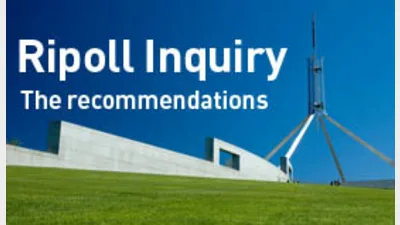AFA backs Ripoll report



The Association of Financial Advisers (AFA) has broadly supported the recommendations stemming from the Ripoll Inquiry of the financial services industry.
AFA chief Richard Klipin said the report, which he described as balanced, would set the industry on the path of becoming a trusted profession.
In particular Klipin supported the recommendation of an explicit legislative fiduciary duty on financial advisers requiring them to place their clients' interests ahead of their own.
Klipin said this would put to rest the ongoing issues around conflicts of interest in the financial advice industry.
In relation to the creation of a professional standards body, Klipin said it was time for the leaders of the industry to come together and work in the interests of consumers. He said the industry should put the divisiveness and distractions witnessed in some recent debates to one side and instead collaborate on the initiative.
Regarding the committee’s recommendation to allow the corporate regulator to strike licenses from those who ‘may not comply’ with the regulations, Klipin said he would be concerned to see advisers and licencees punished on a presumption of wrongdoing.
Further, the AFA chief said the devil would be in the detail where recommendations of an annual shadow shop, conducted by the Australian Securities and Investments Commission, are concerned.
Done properly, Klipin said, shadow shopping could represent a useful ‘health check’ of the industry, but done badly could constitute a witch hunt.
Recommended for you
The central bank has released its decision on the official cash rate following its November monetary policy meeting.
ASIC has cancelled the AFSL of a Melbourne-based managed investment scheme operator over a failure to pay industry levies and meet its statutory audit and financial reporting lodgement obligations.
Melbourne advice firm Hewison Private Wealth has marked four decades of service after making its start in 1985 as a “truly independent advice business” in a largely product-led market.
HLB Mann Judd Perth has announced its acquisition of a WA business advisory firm, growing its presence in the region, along with 10 appointments across the firm’s national network.











